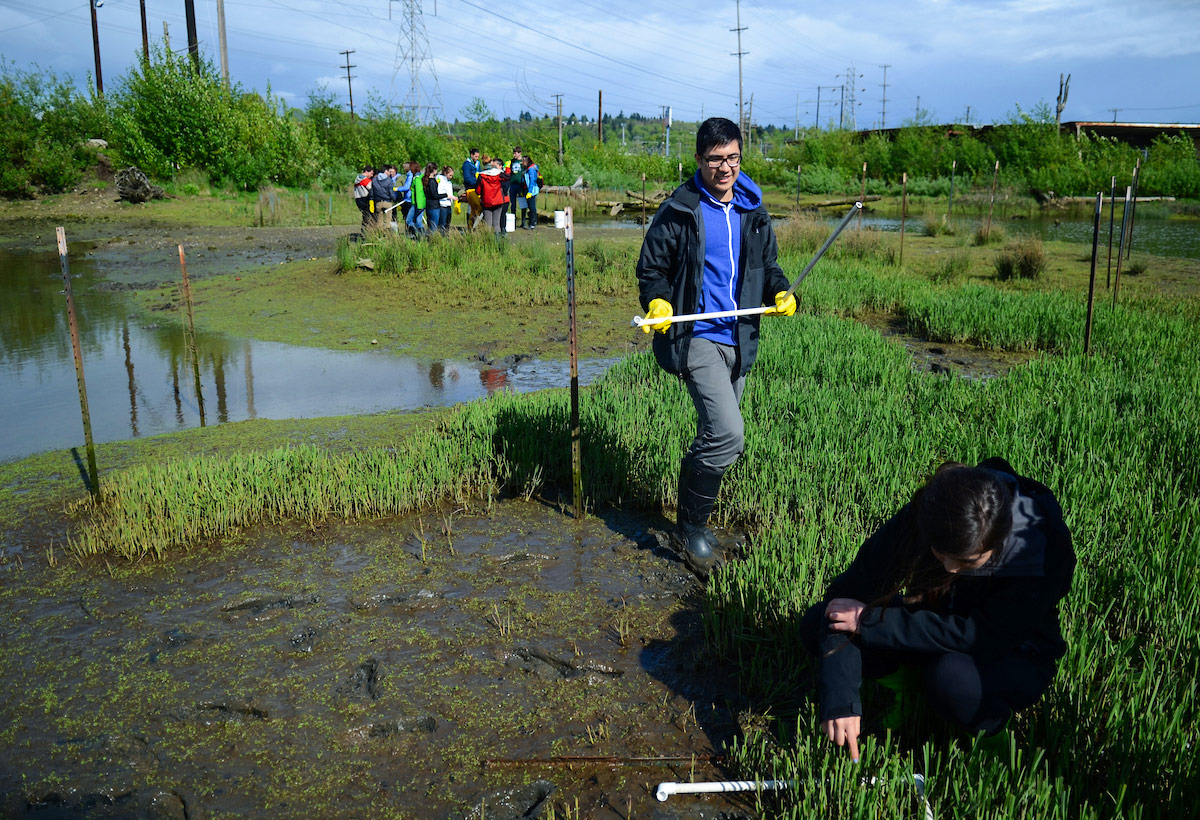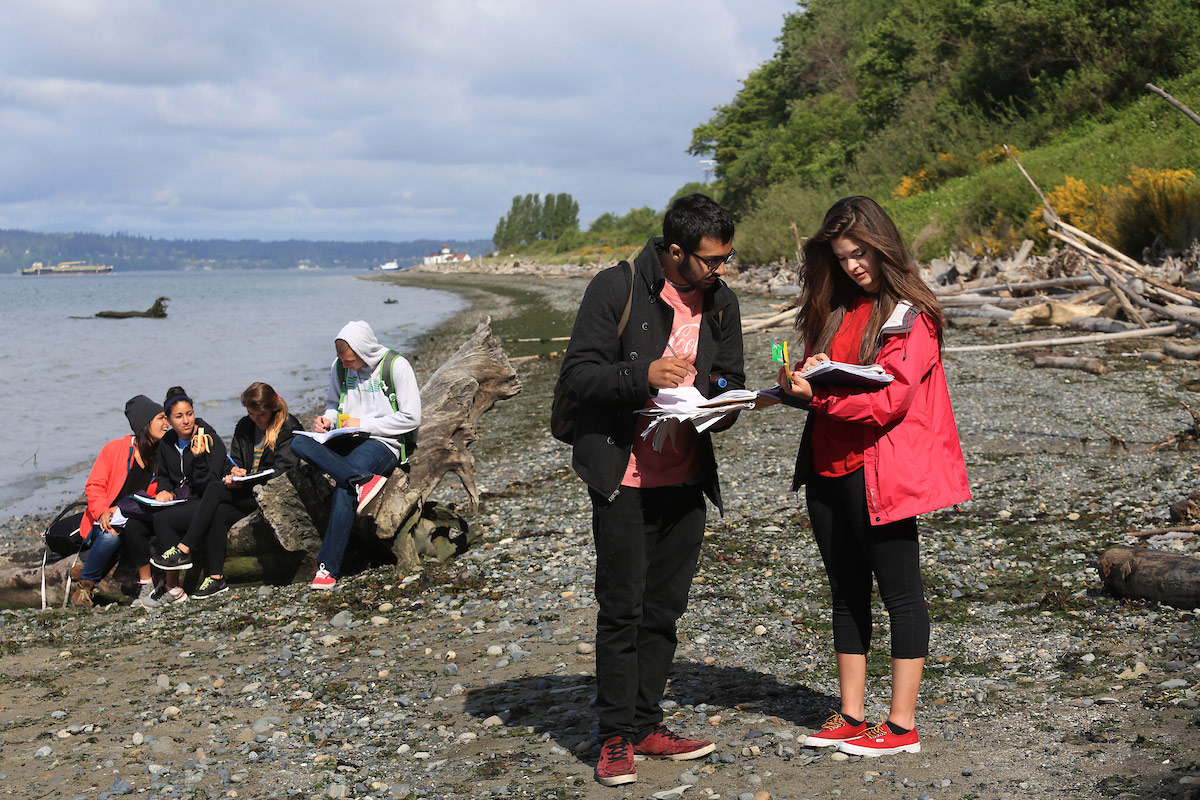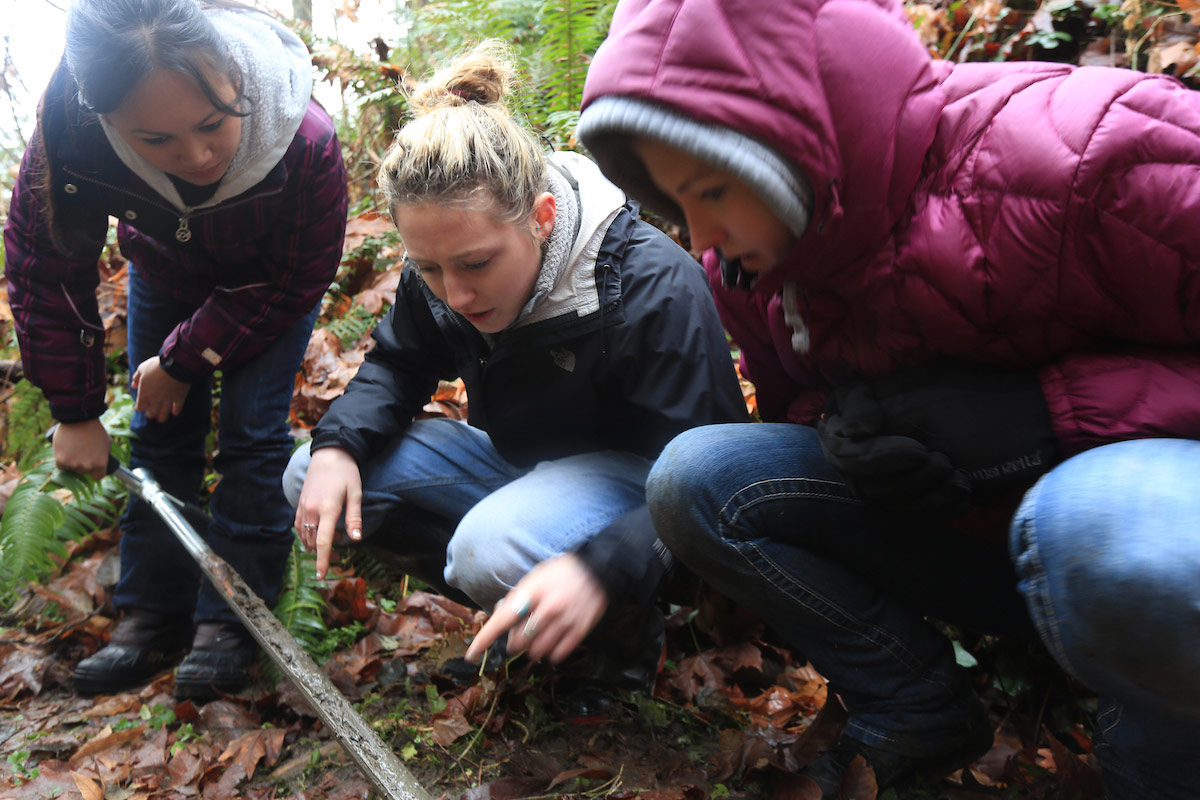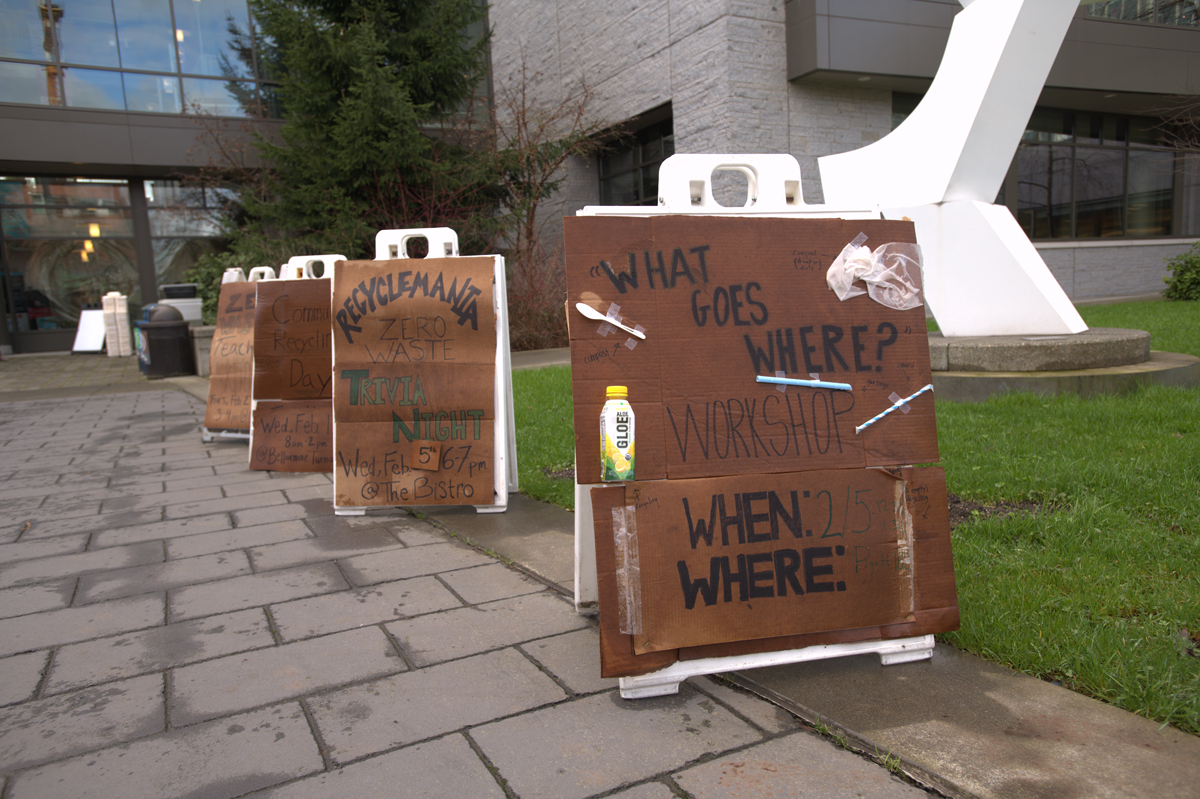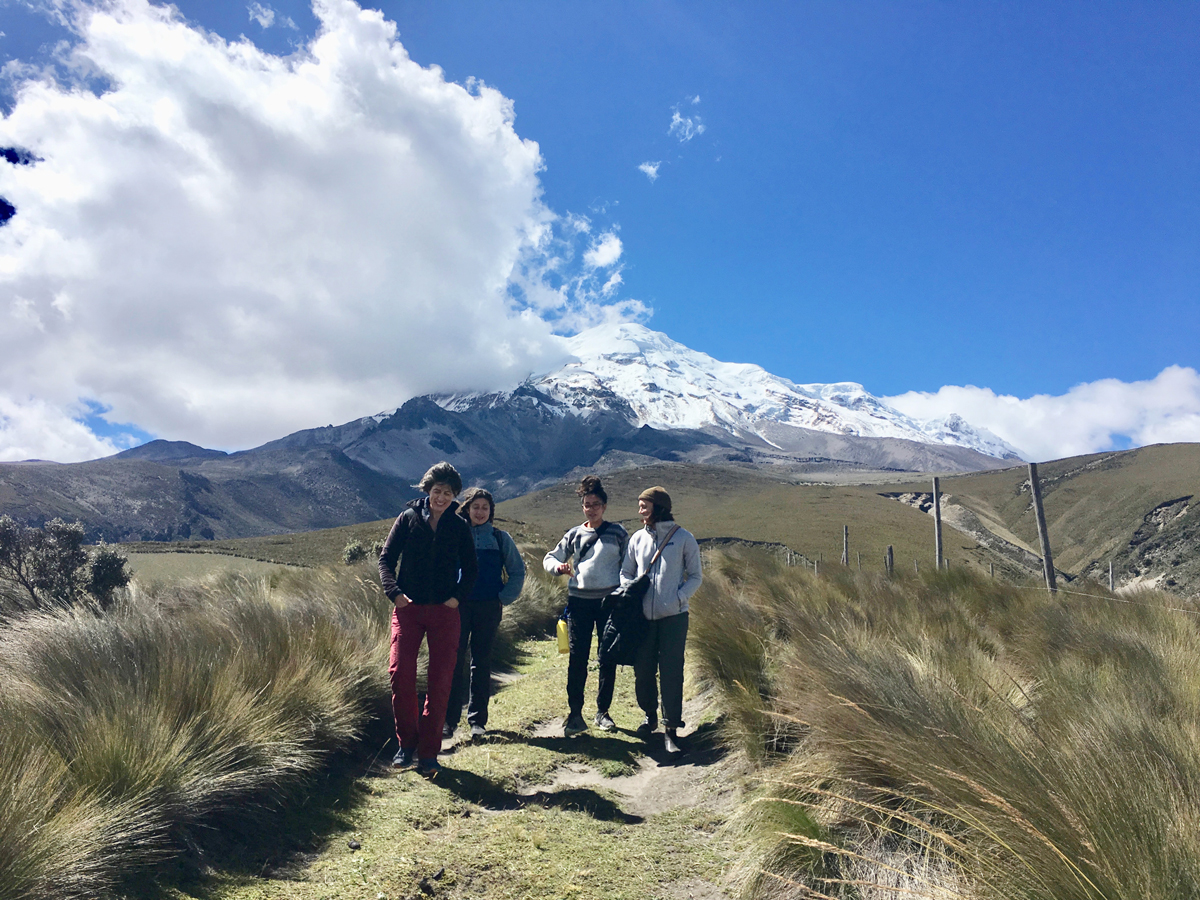Sustainable Leadership
When it comes to sustainability, Seattle University walks the talk.
A commitment to fully divest from fossil fuels. A pesticide-free, 100 percent organically maintained campus. The cessation of the purchase and sale of single-use plastic water bottles. The opening of a new, fully plant-based food dining space, The Convergence Zone Café. Nationally lauded—and highly ranked—for across-the-board sustainability initiatives and programs.
Our commitment to sustainability and environmental justice starts, in many ways, in the classroom. Seattle University offers a wide variety of programs of study and courses in environmental justice and sustainability.
Sustainability Courses
How many courses at SU address social, economic and environmental justice and sustainability? The Center for Environmental Justice and Sustainability (CEJS) reviewed SU's course offerings (Academic Year 2019-2020) and found a total of 608 (graduate and undergraduate combined), representing 34.5% of all courses at SU. (Check out our various Sustainability Courses.)
Sustainable Learning Outcomes
Seattle University has established environmental justice and sustainability learning outcomes for all students who graduate. Upon completing their undergraduate studies, Seattle University students will be:
- Committed to justice and ethical action
- Engaged and ethical members of their global and local communities, act with compassion and integrity and strive for social and environmental justice.
Upon completing their graduate studies, Seattle University students will:
- Assess personal and professional levels of commitment to service for a just and sustainable world as informed by a global perspective.
Critical to the support and advocacy of the university’s sustainability measures across campus is the Center for Environmental Justice and Sustainability (CEJS), under the leadership of director Phillip Thompson, PhD, and the work of Sustainability Manager Yolanda Cieters, who joined SU in 2015.
In her day-to-day as Sustainability Manager, Cieters oversees various communication channels for CEJS, from email to newsletters, the website to social media, answering questions or inquiries about Seattle University sustainability practices. “I also try to include a bit of time each day to stay up-to-date on the latest trends and news in the world of sustainability, locally and globally,” she says. Another important part of her work centers on sustainability reporting, including data collection and analysis, which supports the university’s sustainability initiatives and planning for the future.
“Yolanda does an amazing job working with literally every department on campus to gather performance data for our sustainability reporting requirements,” says Thompson.
“One of the most rewarding parts of my job is to be able to engage in positive change and contribute—albeit in often small steps–to the betterment of our common home,” says Cieters. “… At least every day some time is dedicated to research, development or communication with SU partners (students and employees) about new or ongoing sustainability projects on campus. The latter is really exciting. It’s great to see the impact of collaborative action and the positive change we can make together.”
Recognized as a top school for its sustainability initiatives, Seattle University was one of the first signatories to the 2007 American College and University Presidents’ Climate Commitment and its commitment to social and environmental sustainability permeates all parts of the university. For example, it’s one of the vision statements in the Reimagined Strategic Directions (“to be a leader in environmental sustainability that is socially just”). And, notes Cieters, sustainability and climate change are one of the focus areas for Goal 1 of the Strategic Directions around Reimagining and Revising the Curriculum. Since 2011, the university has convened the President’s Committee for Sustainability, bringing together students, faculty and staff from across campus to work together to advance sustainability. Two years later, the Center for Environmental Justice and Sustainability launched.
“Seattle University was the first Jesuit university in the world to commit to fossil fuel divestment.”
Seattle University’s commitment to divest from fossil fuels by 2023 is one of “the boldest and most exemplary decisions SU has made on climate action in recent years,” says Cieters.
“Seattle University was the first Jesuit university in the world to commit to fossil fuel divestment.”
Learn more about the Center for Environmental Justice and Sustainability at seattleu.edu/cejs/.

